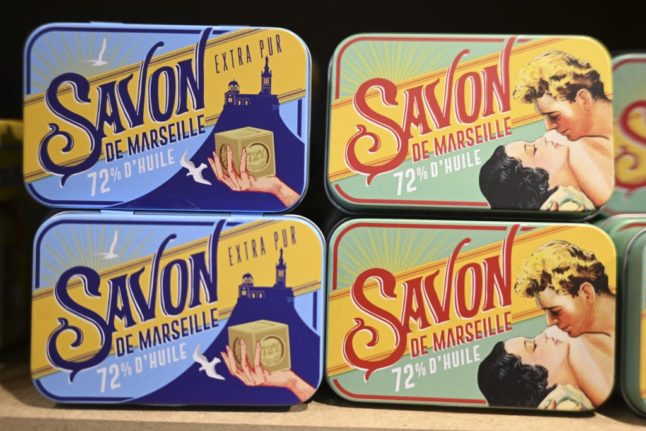When abroad, I – a French person – have been told several times that I smelled “surprisingly good”. When discussing these rather odd comments with my French pals I learned that it happened to some of them to.
Though I was aware of international questions about our hygiene, I genuinely thought the ‘smelly French person’ stereotype was a joke and widely known to be untrue, but it turns out a lot of non-French people still think we are a stinky nation.
While I understand than when visiting France, and especially big cities like Paris and Marseille, clean is not the word you’d use to describe our streets, the inhabitants are – generally – quite clean and nice smelling.
Where does it come from?
But the rumour that French people are not the fondest of water and soap actually goes back to before World War II.
At that time, Paris, like many other European cities, had very little indoor plumbing facilities – generally only in the fancier areas of the city. With no shower or bath in their homes, many French people could not bathe frequently and had to either share bathroom facilities with neighbours or use the bains douches municipaux (public bathing facilities).
Even after the war ended and the plumbing situation improved, the cliché remained and was even fed by British taboids in the 1990s.
I heard French people smell bad. But who cares, they made crepes
— DON (@berye11) April 3, 2012
At that time, articles were written addressing how the French bathed less and used less soap than the Brits after a survey came out in 1998. It said that each French person used 600g of toilet soap each year compared to 1.4kg for a Briton.
But what was not mentioned was the fact that at that time, shower gel was way more popular in France than it was in the UK, which could explain the soap gap.
Others say that the cliché was also kept alive by jealous competitors to the renowned French perfume industry. It is not rare to hear than these delightful scents are only due to the fact the French needed to come up with good products to cover up their bad smell.
Shower over bath
“I think that it’s the contrary, sometimes people’s perfumes are very strong and mix when in the métro and it’s then that it smells bad,” 24-year-old French student Mathilde told The Local.
But if French people love – sometimes a bit too much – their perfumes, it does not mean they skip the shower part each day. In fact, according to a survey issued by Euromonitor, French people shower more than Brits, though they bathe less.
“Who has the time to bathe everyday, I’d rather take a quick and efficient shower and sleep more than spend 30 minutes in a bathtub,” Clémence, a student in Paris told The Local.
Indeed, bathing is not so much a French thing: it takes time and it’s not great for the environment. Though children bathe a lot, adults tend to only do it when they feel stressed and want to relax.
It’s also true that many smaller apartments in France are not equipped with a bathtub.
Remaining cleaning issues
Though once the shower part is over, we may have some other sanitary habits to work on.
“Compared to other cultures, we are considered as quite dirty with for example people not washing their hands after using the toilet,” 23-year-old Inès told The Local.
French people were/are very dirty people, even they don’t take bath everyday so they invented cologne. 😷😷😷
— Karan Jogeshwar Singh Chandel (@Karan49514752) March 12, 2020
According to an IFOP survey shared by Le Parisien in February 2020 (prior to the start of the pandemic), only 75 percent of French women and 68 percent of French men said they washed their hands after going to the bathroom.
On the same idea, only 42 percent of women and 31 percent of men said they washed their hands after using public transport.
And – in news that might strike a blow to the cliché of Frenchmen as great dates – one fifth apparently admitted to not changing their underwear every day.
But for 23-year-old Marie, if the stereotype is much attached to French people, it’s also something you hear about other nationalities.
“I have heard it said that German people are very hairy and smell,” she told The Local.
It’s my experience that French people don’t smell that much, sure there are some with poor hygiene, but that’s also true of people in other countries.



 Please whitelist us to continue reading.
Please whitelist us to continue reading.
I’ve never ever heard any one describe the French as smelly, but if you say, as a French person, that is the comment you’ve experienced I must believe you. It’s never occurred to me that the French smell except generally nice. The use of bidets has always been strange to the British it seems, one of the more sensible additions to a bathroom but completely absent from the average British home except as embarrassed smutty giggles. Cleanliness is the idiocy of the last 100 years and can be put down to the brilliantly success of the likes of Lever Brothers et al. One of the Royal family has, I read, bought a house in Los Angeles with 7 bedrooms and 19 bathrooms … What on earth do they do all day? Do you smell? Is your home smelly? Is your kitchen hygienic? It’s all bollocks peddled by companies wanting to instil fear and doubt to sell their products 90% of which are unnecessary. I’m sliding off topic here so I’ll leave it.
It is something of a long standing joke in many English cultures but one I have not found to be true. I live in an agricultural region and we work hard…so people do get sweaty and can smell by the end of the day…that is perfectly natural.
When I moved to the UK over 20 years ago people stank…using the Underground and buses in London was an endurance test…fortunately there too hygiene seems to have improved over the years…
Also, we don’t pee behind curtains and have electricity
I spent a week in Versailles as a schoolboy at the Lycéé Hoche in 1952. I will forever remember the smell when travelling on the métro – Gauloises, alcohol and body odour. I have not been on the métro for a few years, but if my experiences in other parts of France are anything to go by there is no longer a problem!
It’s something I have never heard any of my British friends say or even imply. The only Brits who I can imagine saying anything so unpleasant are those who still think Britain has an empire.
Or Daily Mail/Express/Telegraph editorials of course. But then the truth is a foreign country to them too (-:
Rob, with his comment on London Underground is very correct. It is much better but can still be a shock to the senses. The French no more deserve the reputation than any other nationality. It also depends on how much garlic we use.
I live in the South of France. I find that the French do not smell at all but in the spring and autumn someone turns up in the supermarket and you can smell them up and down the aisles. I always thought it might be the Germans but I’m not sure.
In a few months I will be celebrating 3 years since I moved from UK to sweaty, garlicy Provence. Tout le monde ici smells just fine.